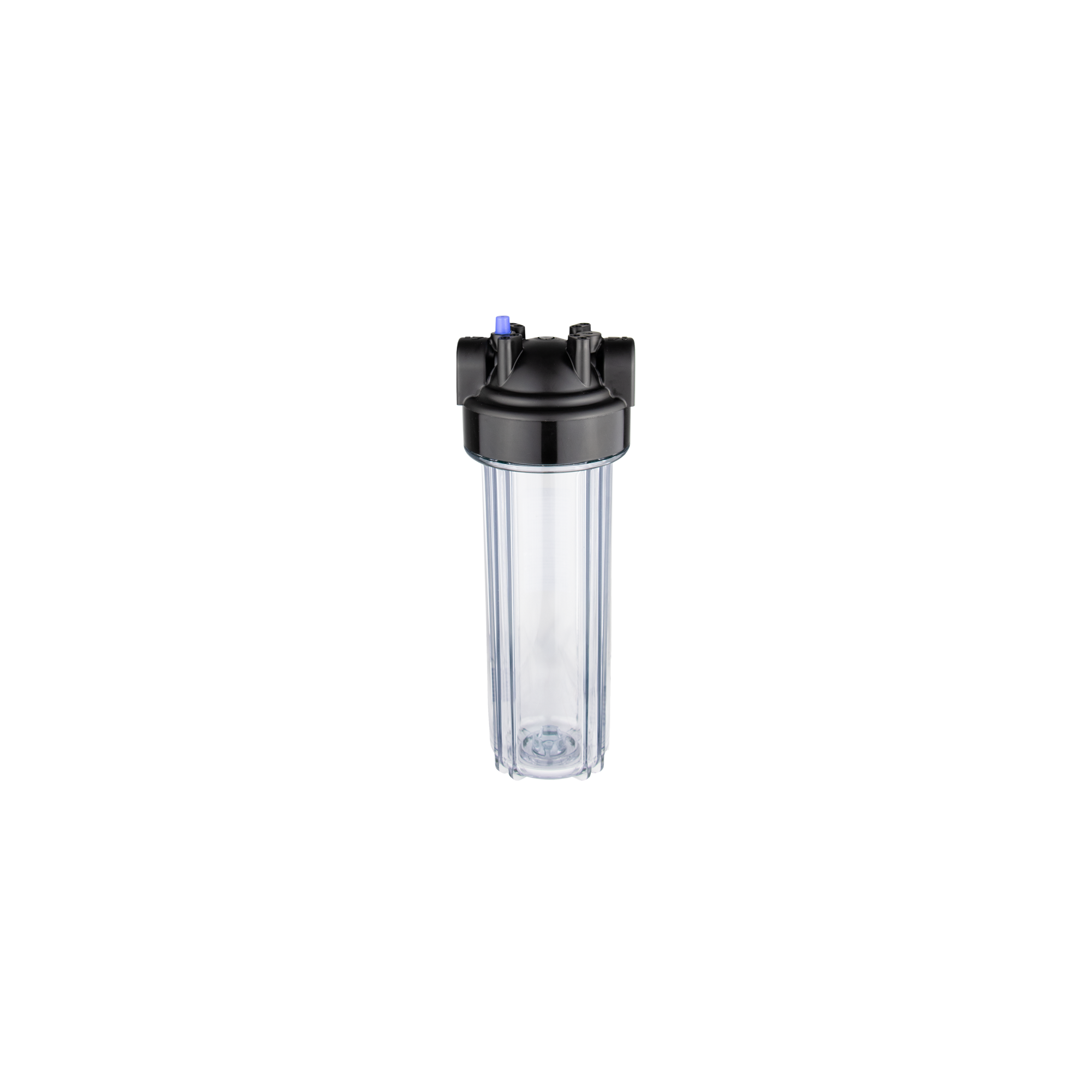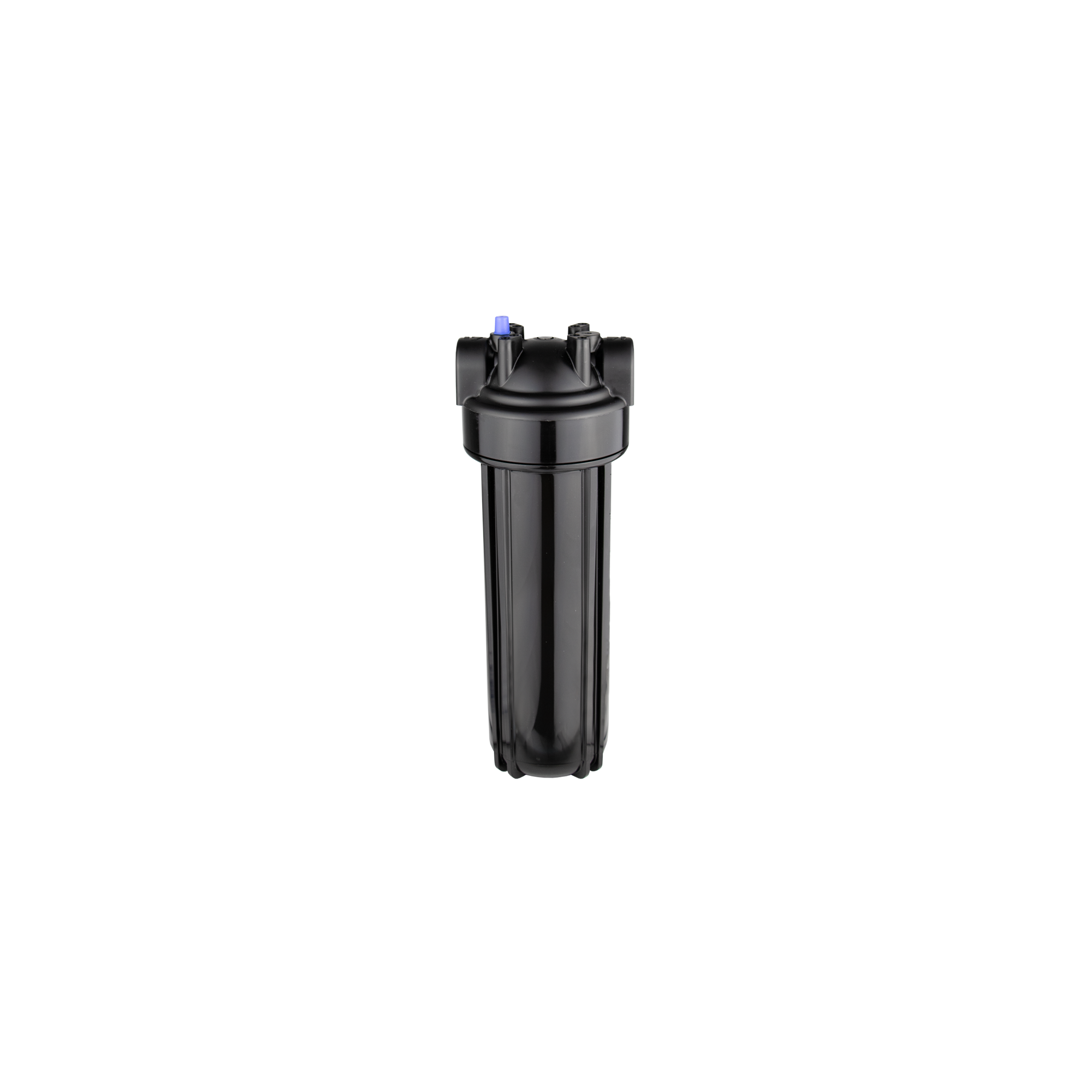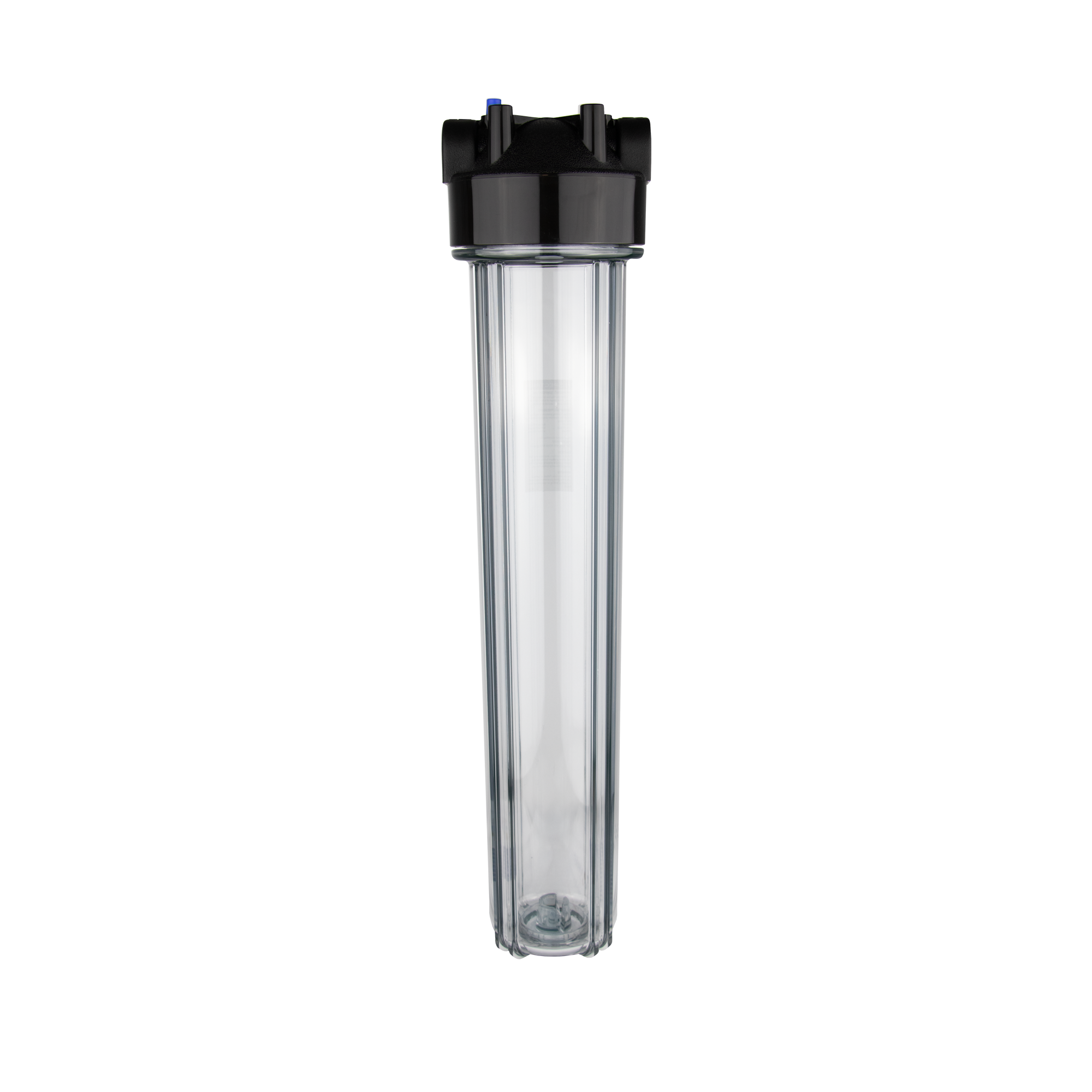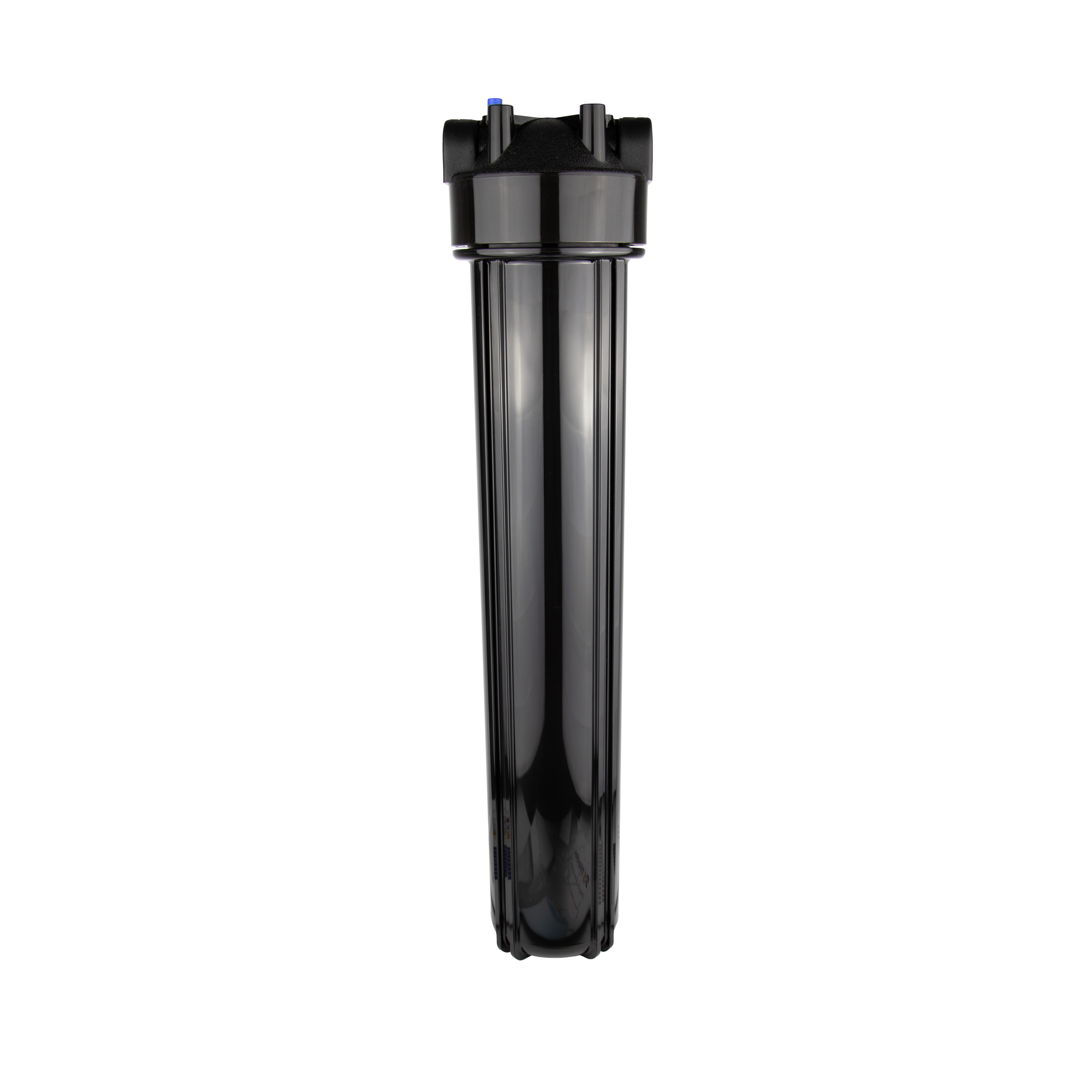Aqualyze Economic Housings (EFH)
- Housing sumps are available in black (PK) & clear (SC) to allow visual changes, in particular media such as colour change resins or depth cartridges
- All 10” housings accept 213 O-ring style cartridges typically used in applications using lower micron filters and requiring a more secure seal
- Patented O-ring recess design prevents pinching and leaks
- Mounting bosses allow for a bracket to be fitted
- 20” Standard and Large Diameter housings include a centring plug to facilitate positive cartridge positioning and stability within the housing
- Individually boxed for security and ease of product identification
- Perfect housing closure for a secure seal is achieved with the relevant optional spanner
- General incoming water filtration
- Food
- Beverage
- Electrical applications
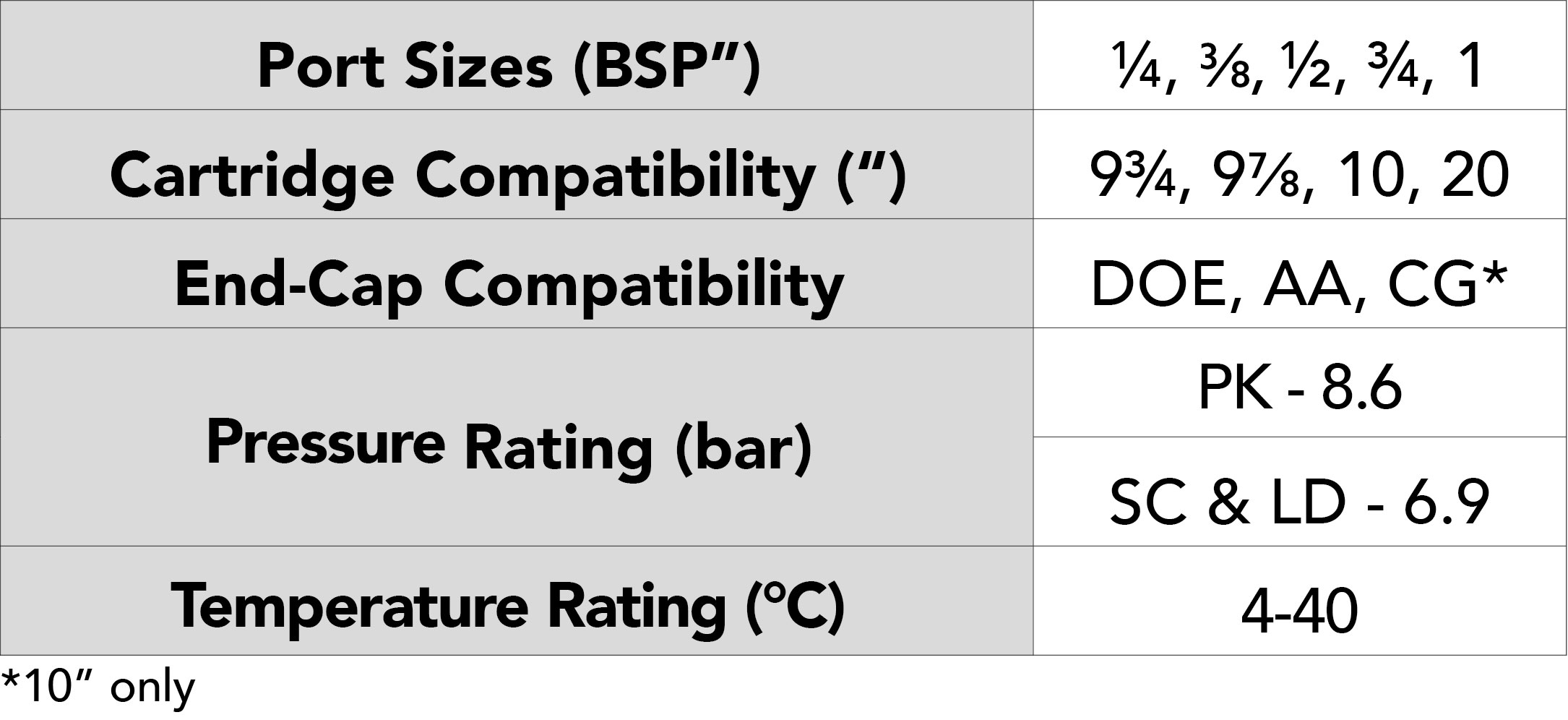

Features & Information
SPECTRUM’s plastic filter housing range. All key features from the marketplace incorporated and improved for a competitive, cost-effective housing solution without a compromise on quality.
FAQs - Aqualyze Housing
Aqualyze housings are constructed almost entirely from polypropylene.
Easy spin-on, spin-off sumps, simple-to-use pipe adaptors and embossed flow directions are all features included in the Aqualyze design to simplify installation and use.
Plastic filter housings are often chosen for their resistance to corrosion, lightweight nature, and affordability compared to metal housings. They are most suited to applications where chemical compatibility and weight are critical.
Consider the below factors when selecting a plastic filter housing. Consulting with a filtration expert or supplier for guidance is also advised.
- Type of fluid
- Flow rate
- Temperature
- Pressure
- Chemical compatibility
- Filter element requirements

